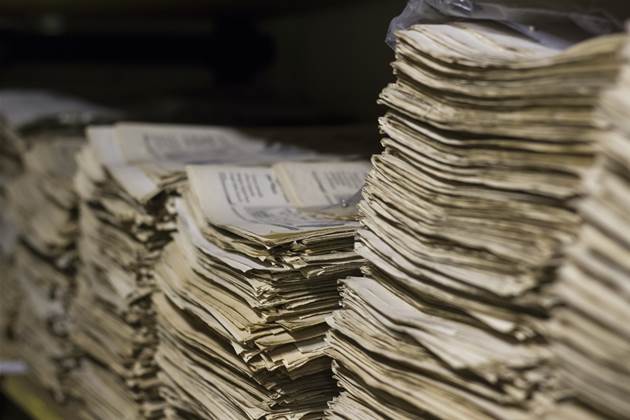The National Archives of Australia is getting ready to test AI across a wide range of operations in maintaining its growing library of historical documents and content.

With a collection approaching 10 petabytes in size, it has a growing need for enhanced processing and classification capabilities.
A spokesperson told iTnews that it intends to create a shortlist of AI tools and hopes to complete trials of these tools by the end of 2026.
It has outlined four areas of interest in assessing the deployment of AI.
The first is transcription and involves rendering digital records into a text file format, which could improve searchability, translation and accessibility to the archives.
Description of data, relating to creating and updating associated metadata for records, was also of interest, and could include tools to assist with summaries, tagging, biometric recognition, image detection and other form fields.
A third area titled "access examination" relates to analysing the contents of data against exemption categories outlined in the Archives Act 1983 (Cth).
This may include tools to assist with peer reviewing, guardrail assistance, keyword detection and synthesis from multiple created documents.
Finally, the Archives is interested in what impact AI could have on ‘search and discovery’ of its digital collection of media.
AI models will be assessed by the Archives with a limited sample set of publicly accessible records.
The Archives is understood to have previously run several internal AI tests.
AI was not explicitly mentioned in its Strategy 2025-2030 roadmap, but a spokesperson did confirm to iTnews that this assessment of AI tools is in line with the plan.
"Under Strategy 2025-2030, National Archives of Australia is exploring ways to improve how we manage a growing and evolving collection while providing enriched opportunities for audiences to discover, explore and access records," the spokesperson said.
At present, the Archives only uses AI in a limited capacity, mostly to do with text summaries, ideation and the review of non-sensitive outputs.
The market approach for AI tools builds on recommendations first outlined in the Archives’ 2022-2023 annual report [pdf], in which the advisory council recommended the exploration of artificial intelligence and machine learning “to keep pace with technological change”.
In 2021, the Archives received $67 million from the federal government to improve its cyber security and to digitise irreplaceable physical records.



_(20).jpg&h=140&w=231&c=1&s=0)

_(23).jpg&h=140&w=231&c=1&s=0)



_(26).jpg&w=100&c=1&s=0)

 iTnews Executive Retreat - Security Leaders Edition
iTnews Executive Retreat - Security Leaders Edition












_(1).jpg&h=140&w=231&c=1&s=0)



